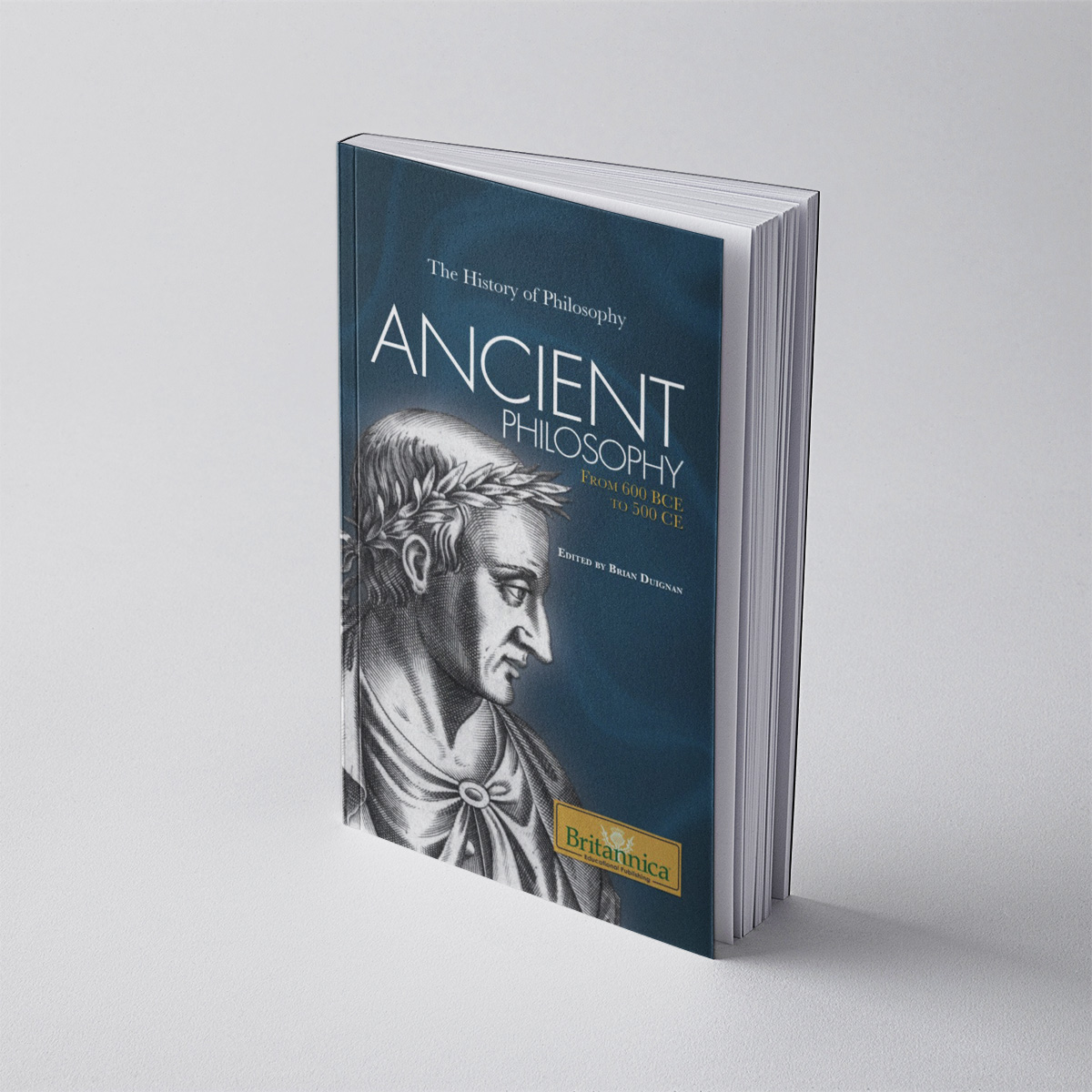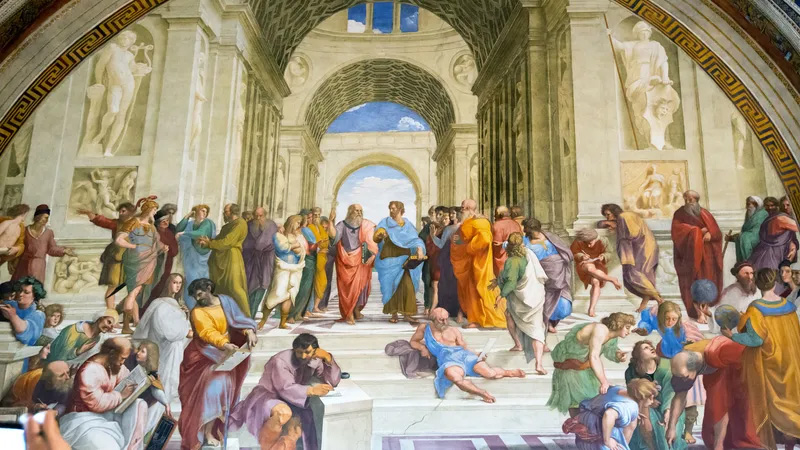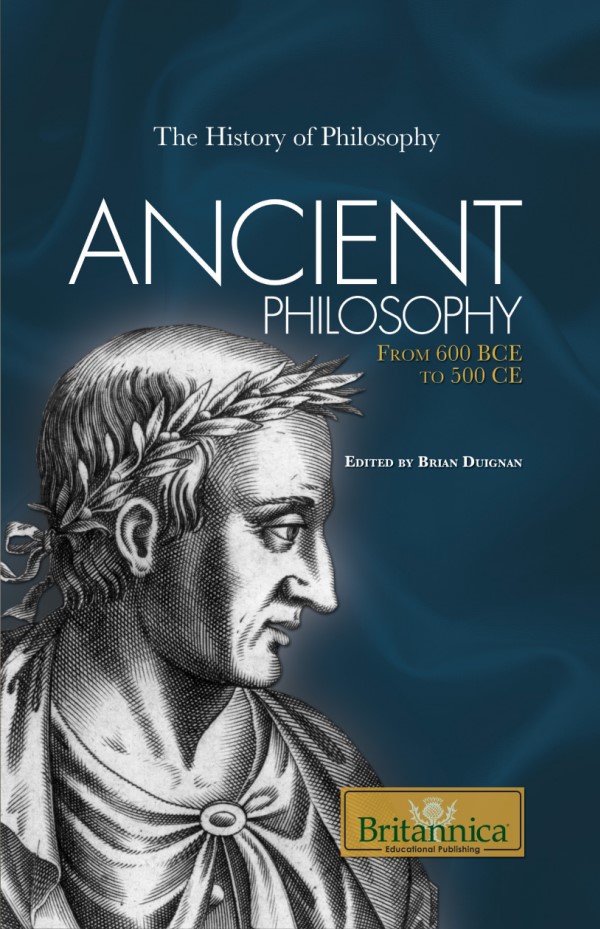
History of Ancient Philosophy
History of Ancient Philosophy - Britanica
Essay on the book: History of Ancient Philosophy
Essay on the book: History of Ancient Philosophy.
- Hellenic and Roman philosophy after Aristotle was dominated by schools such as Stoicism, Epicureanism and Skepticism, which arose in response to existential concerns. They shared the common goal of guiding individual conduct through ethical and epistemological doctrines that sought tranquility of mind.
Introduction
Imagine my surprise to discover that this strange downtown street that I liked to frequent so much had suddenly disappeared without a trace. Where there used to be a network of cobblestone streets where I used to stroll and watch people pass by, now there were only plots of land, with the remains of walls and piles of rubble. Confused, I wondered what had become of the lively neighborhood that once existed there.
This anecdote illustrates somewhat the feeling that must have gripped many Hellenic thinkers of the post-Aristotelian era, as they witnessed the decline of the civic institutions that had been at the center of the philosophical splendor of Athens and other major polis. After the death of Alexander the Great in 323 BC and the following end of the brief but intense era of the Macedonian successors, the Greek political map was profoundly altered. The rise of new imperial powers such as Rome left little room for the cultural primacy of the small city-states, whose glory days seemed to be in the past.
It was in this context of uncertainty and change that currents such as stoicism, skepticism and epicureanism gained strength, seeking to offer philosophical frameworks that would help their contemporaries face the tribulations of a convulsive age. Although these schools promoted different perspectives on issues such as the nature of the supreme good or the limits of knowledge, they all shared a common goal: to guide individual conduct through elaborate ethical and epistemological doctrines capable of providing a certain psychological tranquility in the face of the world’s fickleness.
This book shows us that, in spite of their theoretical divergences, the main post-Aristotelian currents coincided in their practical purpose of setting themselves up as salvific guides in the face of the uncertainty of an era. To this end, we will analyze the ethical and cognitive teachings of each school, contrasting them with the existential challenges of their historical context. With this, we would be glimpsing which were the factors that propitiated the rise of these doctrines and their transcendence in the conformation of later thought. Finally, we will study the aspects that these philosophies shared in spite of their differences, with the purpose of clarifying their common aspiration to straighten the course of human beings in a world in transformation.
STOICISM AND VIRTUE ETHICS
They say that the secret of happiness consists in accepting what we have to live with courage and fortitude. This resonated deeply with Zeno of Citium, founder of Stoicism, who taught that virtue is inherent in the world. For the Stoics, virtue resided not only in noble acts, but in the temperance of the soul in the face of life’s turmoil.
Following the teachings of Zeno, the Stoics believed that everything that exists is governed by reason. Nature offers us signs to understand its providential design, and virtue manifests itself by inviting us to act with courage and justice. This ideal inspired millions throughout the ages, giving them encouragement in difficult times. If inner calm represented for the Stoics the summit of human existence, the challenge was to maintain it even when what they loved most was taken away from them.
As children of their time, the Stoics understood that the supreme duty was to strive to fit into the social fabric. Far from isolating themselves, their sages were to play an active role for the benefit of the community. This led many to become involved in just causes and to confront tyrants without fear, making their serene but unyielding voice heard. Figures such as Seneca or Epictetus did not hesitate to risk everything when virtue called them, even at the cost of their safety.
Stoicism, however, did not advocate disconnection from the world, but rather inner transformation capable of withstanding its ups and downs like the waves of the sea. Stoic fortitude was exercised especially in the moral sphere, where the logos was to pave the path of righteousness. Thus, thinkers such as Musonius argued that both sexes were equal by nature, ahead of their time. This moral concept contributed to the influence of Stoicism beyond borders, opening the doors to intercultural dialogue.
Although they admired the exercise of letters, the Stoics venerated virtue incarnate even more. For them, the good did not reside in empty abstractions, but in sincere conviction that translates into deeds. Stoic courage had nothing to do with recklessness, but with serene surrender in the face of every challenge. Perhaps that is why its teachings dazzled statesmen like Marcus Aurelius, whose perseverance in duty testifies to this day to the healing power of Stoic philosophy.
EPICUREANISM AND THE PURSUIT OF PLEASURE
They say that no one knows how to appreciate life as much as those who know that their time in this world is short. This resonated deeply with Epicurus, who was convinced that the supreme joy lay in attaining inner peace. Following in his footsteps, the Epicureans believed that the only worthy end was bliss, not the ephemeral joy of the senses but the tranquility that emanates from a simple existence.
Unlike the Cynics, who despised all material delights, Epicurus understood that certain pleasures are natural to human beings. However, only mental pleasure, the fruit of friendship and contemplation, could soothe the soul forever. Epicurus particularly appreciated the talk among friends under the moonlight, tasting it with moderation like the purest nectar. Far from judging those who sought ordinary pleasures, he defended that every man deserves to live as he pleases as long as he does not harm another.
Following the paradigm of the gardener, Epicurus founded in Athens an enclosure where they practiced the wisdom of leisure. His pupils enjoyed gatherings that delighted the soul without enervating the body, for they knew that excess in enjoyment reduced happiness. By dint of lectures and readings, they learned to be fed up with so little, turning their thoughts to the essentials of each day. When they left this world, the memory of those who heard them rejoiced in their teachings.
Epicurus’ garden was more than an enclosure: it was an oasis where the spirit was hydrated with knowledge. Its inhabitants found here the inner strength that allowed them to walk arduous paths with fortitude. When luck was elusive, they knew how to appreciate the charms of a sunny day with loyal friends. Certainly, their ideal was fulfilled to the extent that they elevated above all things the happiness of their fellow man.
Although over time his message was distorted, Epicurus actually sought to illustrate that which excludes man from the fear of death and the gods. He also intended that sublime friendship could mitigate any misfortune. Thus, his philosophy did not propose easy joy, but a consistent happiness that resists the setbacks of life. The origin of his wisdom was the conviction that, if the fear of the unknown is placated, everything else is carried or left with indifference.
SKEPTICISM AND SUSPENSION OF JUDGMENT
In the Athens of antiquity, when the philosophical schools disputed incessantly, there were those who sought a path opposite to the fierce dialectic. Pyrrho of Elis walked it defending that we can know nothing, and his legacy inspired the sharpest of the skeptical Academy. Following in his footsteps, Arcesilaus and Carneades questioned everything that was thrown at them, leaving each one in the most clamorous doubt.
Not content with debating prominent philosophers such as Plato and Aristotle, the skeptics of the Academy scaled the pinnacle of skepticism by suspending their own judgments. For while they affirmed that nothing can be affirmed, in that very thing they affirmed something. Thus, with that ironic twist so Greek, they pointed out the endless labyrinth where the understanding wanders when it tries to know the ultimate reality. The only thing left to do was to be guided by what was probable, even if the truth could never be reached.
Beyond lay the path of Aenesidemus, who proposed arguments that twisted the desperate efforts of the dogmatists. Following in his footsteps, Sextus Empiricus offered the whole world the opportunity for a new way of seeing, while preserving the different worldviews in their ironic confrontation. His masterful work invited to live in uncertainty, but not in chaos. He left the mind free to forge a thousand honest stories about the elusiveness of reality.
In truth, skepticism was not intended to engender passivity, but to safeguard the vital curiosity that beats in every searching spirit. He invited us to travel along multiple paths instead of being locked into immovable dogmas. Thanks to his example, philosophy never rests on the limp laurels of some fossilized truth.

CONCLUSION
The journey offered by this book on Greek philosophy allows us to discover the rich legacy left to us by those wise men of the past. Their teachings, although formulated millennia ago, continue to resonate strongly in our current debates. This shows that the great questions about the meaning of existence and the nature of reality are still alive and well.
Throughout its pages we have the privilege of recalling the adventures of illustrious characters such as Socrates, Plato and Aristotle. Undoubtedly, their discoveries opened new horizons, making it evident that wisdom is built on the shoulders of giants. At the same time, we encounter the skepticism of Pyrrhon and the thirst for knowledge of so many scholars who fed the flame of philosophy with their doubts. As if that were not enough, Epicurus showed us that right reason can also be found in the path of pleasure.
It is obvious that Greek philosophy was a conceptual breakthrough that propelled humanity forward. Nevertheless, those who believed they had unveiled the absolute mystery fell into the heresy of believing that their time possessed all the answers. Precisely they promoted new questions that continue to this day. It is auspicious that someone has always arisen to question hasty verdicts, renewing the concern with new hypotheses.
If this journey has taught us anything, it is that the progress of knowledge is built on the incessant collective work of questioning and discussing. Only in this way will we be able to transform into treasures those enigmas still unresolved. Only by cultivating reasoned disagreement will we be able to delve into the unfinished abyss of truth. And there is nothing wiser than to recognize, together with Socrates, how little we know about the universe that welcomes us and contains us.





0 comments